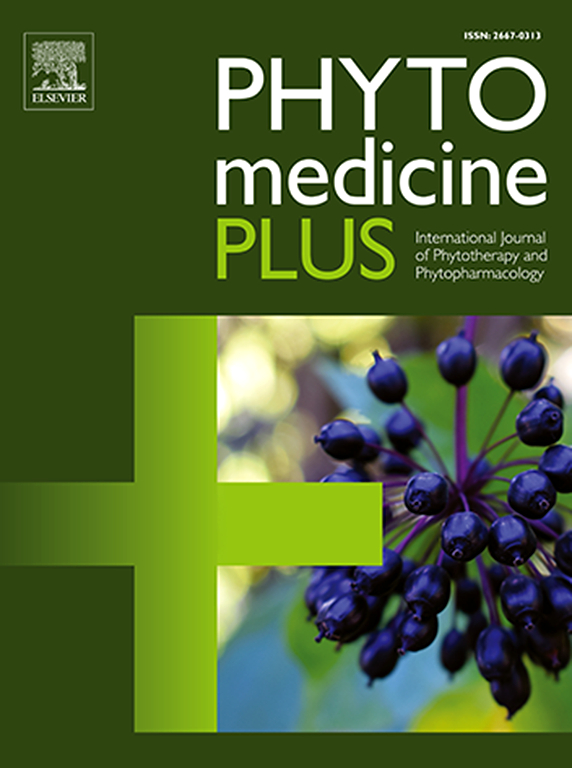槲寄生(Viscum album L.)致人乳头瘤病毒:7例系列病例
Q3 Pharmacology, Toxicology and Pharmaceutics
引用次数: 0
摘要
人类乳头瘤病毒(HPV)是一个重要的公共卫生问题,因为50%的人口在其一生中至少有一次感染这种病毒的风险。尽管宿主免疫系统能清除大多数感染,但一小部分患者不能完全清除生殖器HPV。他们患HPV相关癌症的风险增加,并且可以传播HPV。目前,没有传统的治疗方法可以消除HPV携带者体内的病毒。本研究描述了连续7例门诊HPV患者使用Viscum album extract (VAE)治疗的临床进展。在4名患者中,HPV感染持续了6个月或更长时间(其中2名患者持续了22个月);其中三名患者是最近才确诊的。患者采用局部(阴道)VAE治疗。对于高危HPV或宫颈上皮内瘤变患者,给予皮下注射VAE。治疗生殖器炎症的处方为金盏菊(阴道胚珠),治疗疣状病变的处方为西花软膏。在整个治疗过程中监测临床和实验室参数。所有药物耐受性良好,仅在VAE注射部位报告轻微的皮肤反应。治疗后,7名患者中有6名HPV杂交捕获试验呈阴性。这六名患者中的一名需要重复治疗,之后HPV杂交捕获测试转为阴性。在一名患者中,治疗未能根除HPV。结论虽然本病例系列样本量小,但生殖器HPV的VAE治疗潜力有待进一步研究。这种治疗需要通过未来的研究来验证,之后应该进行临床试验,严格评估槲寄生对生殖器HPV感染的疗效。本文章由计算机程序翻译,如有差异,请以英文原文为准。
Mistletoe (Viscum album L.) for human papillomavirus: A seven-case series
Background
Human papillomavirus (HPV) is a significant public health concern, as 50 % of the population are at risk of being infected by this virus at least once in their lifetime. Although the host immune system clears most infections, a small percentage of patients do not fully clear genital HPV. They have an increased risk of developing HPV-associated cancers and can transmit HPV. Currently, no conventional treatments are available to eliminate the virus in HPV carriers.
Cases presentation
This study describes the clinical evolution of seven consecutive outpatients with HPV treated with Viscum album extract (VAE). In four patients, the persistence of HPV infection was six months or longer (in two of these patients, it had persisted for 22 months); in three patients, the diagnosis was recent. The patients were treated with topical (vaginal) VAE. For those with high-risk HPV or cervical intraepithelial neoplasia, subcutaneous injections of VAE were administered. Calendula officinalis (vaginal ovules) was prescribed for genital inflammation, and Thuja occidentalis ointment for verrucous lesions. Clinical and laboratory parameters were monitored throughout the treatment. All medications were well tolerated, with only mild skin reactions reported at the VAE injection site. Following treatment, six out of seven patients had negative hybrid capture tests for HPV. One of these six patients required a repeat course of treatment, after which the HPV hybrid capture test turned negative. In one patient, treatment failed to eradicate HPV.
Conclusions
Although this case series has a small sample size, there is a therapeutic potential to be further investigated regarding VAE for genital HPV. The treatment needs to be validated by future studies, which should be followed by a clinical trial to rigorously assess the efficacy of mistletoe for genital HPV infection.
求助全文
通过发布文献求助,成功后即可免费获取论文全文。
去求助
来源期刊

Phytomedicine Plus
Medicine-Complementary and Alternative Medicine
CiteScore
3.70
自引率
0.00%
发文量
178
审稿时长
81 days
期刊介绍:
 求助内容:
求助内容: 应助结果提醒方式:
应助结果提醒方式:


